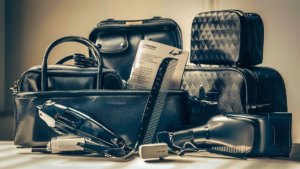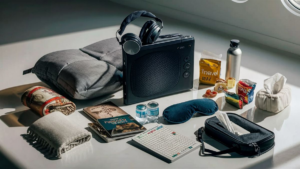When it comes to traveling, whether for work or leisure, it’s essential to understand what items you can and cannot bring on a plane. Tools are often necessary for various purposes, from professional work to personal projects, but can you bring them on a plane? Let’s delve into the regulations and guidelines surrounding this topic to ensure a smooth and hassle-free travel experience.
Understanding Transportation Security Administration (TSA) Regulations
The Transportation Security Administration (TSA) is responsible for ensuring the safety and security of passengers traveling by air within the United States. They have established guidelines regarding what items can be brought in carry-on and checked luggage. When it comes to tools, TSA has specific rules in place to maintain safety while traveling.
Carry-On vs. Checked Luggage
Tools can generally be packed in both carry-on and checked luggage, but there are some restrictions and considerations to keep in mind for each.
Carry-On Luggage
When packing tools in carry-on luggage, it’s essential to be mindful of TSA’s regulations regarding sharp objects and potentially hazardous items. Sharp tools such as screwdrivers, wrenches, and pliers are generally allowed in carry-on luggage, but certain types of sharp objects may be subject to additional screening or prohibited altogether.
Additionally, tools must be securely packed to prevent injury to TSA agents and other passengers. Any sharp or pointed items should be sheathed or securely wrapped to prevent accidental harm.
Checked Luggage
Checked luggage offers more flexibility when it comes to packing tools, as items that may be restricted in carry-on luggage are often allowed in checked bags. However, there are still guidelines to follow to ensure safe and secure transportation of tools.
Tools should be properly packed to prevent damage during transit, and any sharp or pointed items should be securely wrapped or sheathed to prevent injury to baggage handlers and TSA personnel during inspection.
Types of Tools Allowed
While TSA allows most common tools to be packed in both carry-on and checked luggage, there are some exceptions and limitations to be aware of.
Common Hand Tools
Common hand tools such as screwdrivers, wrenches, pliers, and hammers are generally permitted in both carry-on and checked luggage.
Power Tools
Power tools, including drills, saws, and sanders, are also allowed in checked luggage, but they may be subject to additional screening due to their potential to cause damage or harm if not properly secured.
Specialized Tools
Specialized tools, such as soldering irons, torches, and certain types of blades, may be subject to additional scrutiny and may not be allowed in carry-on luggage. It’s essential to check TSA’s guidelines or contact them directly if you’re unsure about specific tools.
Traveling with tools can be a necessity for many individuals, whether for professional or personal reasons. Understanding TSA’s regulations and guidelines regarding tools on a plane is crucial to ensure a smooth and hassle-free travel experience.
While most common hand tools are allowed in both carry-on and checked luggage, it’s essential to be mindful of restrictions and limitations, especially when it comes to sharp or potentially hazardous items. By following TSA’s guidelines and properly packing your tools, you can travel with confidence knowing that you’re complying with safety regulations.
Transportation Security Administration (TSA) Guidelines
Alongside understanding TSA regulations, it’s vital to familiarize yourself with specific guidelines that might affect your travel experience.
Electronic Tools
Electronic tools like battery-powered drills or soldering equipment may require additional scrutiny at security checkpoints due to concerns about lithium batteries or electrical components.
Chemical Tools
Tools involving chemicals, such as certain adhesives or solvents, might be subject to stricter regulations. It’s advisable to check with TSA or airline authorities regarding these items before packing them.
| Type of Tool | Carry-On | Checked Luggage |
|---|---|---|
| Common Hand Tools | Allowed | Allowed |
| Power Tools | Subject to Additional Screening | Allowed with Precautions |
| Specialized Tools | Subject to Restrictions | Subject to Scrutiny |
Frequently Asked Questions
- Can I bring a toolbox on a plane?
- Do I need to declare my tools at the security checkpoint?
- What should I do if I’m unsure about a specific tool?
Yes, you can bring a toolbox on a plane, but it’s essential to ensure that all the tools inside comply with TSA regulations and guidelines.
In most cases, you do not need to declare your tools separately at the security checkpoint. However, if you have any doubts, it’s best to ask TSA agents for guidance.
If you’re uncertain about whether a particular tool is allowed on the plane, it’s best to contact TSA directly or check their official website for clarification.
See also:






